Coronavirus Update: National Civil Protection Helds Press Conference
November 26, 2021 - Today, the National Civil Protection offered a coronavirus update through a press conference in which they commented on the latest related to COVID-19 in the country, from the number of infected in the last 24 hours, the COVID certificates, the tests, and the variant discovered in South Africa.
As reported by Telegram.hr, the National Civil Protection Headquarters held a press conference at which new data on the situation with coronavirus in Croatia and the world were presented. The conference was delayed by about 15 minutes. First, data on newly infected people were presented, so it was said that today we have 5,460 new cases, and 75 people have died. "Among the dead are 14 vaccinated, one with three doses and one partially," it was said.
Krunoslav Capak presented data on those infected on this day two weeks ago. "We have 10 percent more new cases this week than last. The incidence average is 1619.17. The share of positives in those tested today is 39.6%. In the last seven days, 40.1% and since the beginning 17.4%", he said.
Speaking about the dead, Capak said that out of 75 dead, 60 were not vaccinated with any dose, and 61 did not complete the vaccination in total. “Of the 37 deceased, over the age of 80, 34 were not vaccinated, or 92 percent. In the last 24 hours, 34 people were put on a respirator, 26 of whom were not vaccinated,", he added.
Božinović talks about COVID recommendations
Davor Božinović announced a special decision on border restrictions with regard to the new variant of the virus, as well as that a recommendation from the level of the European Commission will follow. “This applies to people coming from South Africa, Namibia, Lesotho, and Hong Kong,” he said. He said that entering Croatia from those countries would either be banned or that our people coming from them would have to be quarantined for 14 days, and stressed that the new detected strain has the potential to be more contagious than the delta.
Božinović continued to talk about COVID certificates. Yesterday, the European Commission proposed that certificates after vaccination should last for nine months, and Božinović said that we currently apply 12 months after the booster dose because it is not known how long the immunity will last. The ECDC also announced yesterday that new guidelines are being worked on for COVID certificates, which would also look at the percentage of those vaccinated with regard to those infected.
What about those who got over it and got vaccinated
Journalists asked when it would be decided on the COVID certificates, to which he said it would likely be mid-December. He also confirmed that for all those who have COVID certificates valid for one year, there will be a period for receiving a booster dose.
Some new decisions for Advent are not currently being considered, he confirmed, because it is an outdoor event after all. The journalists also asked what happened to the people who got sick and got vaccinated, what happened to their confirmations. "If someone is vaccinated with two doses after recovering, it is counted as if he received three doses and he is issued aCOVID certificate for one year. "I don't know what the EU practice will be, but we will, if it is mandatory, harmonize with the EU," he said.
Markotić explained the new strain
Alemka Markotić answered questions about the new strain, according to which it is a danger considering the measures that are being introduced and how it affects the vaccine. "Several cases have occurred in several countries, it is known that there are more than thirty different mutations at the spike protein level and that is why all countries are concerned, and the WHO is preparing certain meetings to discuss what this could mean. This large number of mutations, especially on the spike protein, can affect its binding to receptors or the effectiveness of the vaccine'', she said.
Markotić indicated that everything should be examined quickly. "All measures will certainly be taken to obtain results, at least in laboratory conditions. It is good that there are not many cases outside Africa or in Africa itself,” concluding that she hoped to learn more about the virus in the coming weeks.
Capak: 'We only had seven cases of delta plus'
Capak first said that so far we have had only seven cases of delta plus variants and that it does not have a great potential for spread, and for the latest strain he said they could mean that it could have a much higher potential for spread.
"The question is how it will spread from South Africa to countries with more vaccination, the fact that it broke into Hong Kong does not mean that it will be the same in other countries," he said, adding that the best protection is entry bans for foreign nationals from those countries and 14 days of quarantine for our citizens with testing prior departure.
Long debate on amendments to the Act
The journalists also asked about the amendments to the Law, which is in public consultation, and which contains an article according to which the sanitary inspector could order vaccination of persons exposed to the virus. They asked how it was, and they did not receive a concrete answer from the Headquarters, Božinović only said that the law was in consultation and that everything would be analyzed.
When asked to further clarify this, he replied: "We are dealing with other, more urgent aspects, I did not participate in the amendments to the law." Asked if it is not unbelievable that they do not know what is written in the amendments to the Law, Božinović said that he would get an answer to that question during the day. “We can’t give you an answer to that question,” he said, adding that he would clarify that later.
Božinović and Beroš managed to clarify everything
Somewhat later, Božinović returned to this issue, saying that the issue was not clearly formulated, so he explains that two points were added to the Law. "My colleague received an answer in the meantime, it says that I can order the implementation of the security measure of the obligation to present evidence, which means that you have to show COVID confirmation that you have been tested, vaccinated, or recovered. We can also order the removal of people who have entered certain areas", he said.
“If you had seen what I read now, you would have seen that it relates to the obligation to present evidence,” he said. The floor is taken by Minister Vili Beroš, who says that the journalist is commenting on an earlier article that already exists in the Law. "It is not at all a tendency for a sanitary inspector to order someone to be vaccinated. This article exists when a sanitary inspector can order it for hepatitis for example. But, as there is no obligation to vaccinate, no one will be able to order compulsory vaccination to anyone", said Beroš, adding that he thinks that everything has been explained.
Božinović concluded that no one plans to introduce a coronavirus vaccination obligation. The journalists were also interested in whether they were considering changing the recommendations with regard to the new strain of the virus and self-isolation, to which Capak said that he was not thinking about it yet.
Beroš: 'We support testing but it is not the best'
Beroš was asked if there were any plans to expand testing in the health system, to which he said that all the circumstances were taken into account and that the third dose was therefore emphasized. "We support testing, but it is not the best. Only through a combination of recovery, vaccination, and testing can we give a guarantee, but even that is not absolute", he said and added that COVID certificates protect those who fight against them, the unvaccinated.
Capak also referred to the theses that appear in public, especially among the protesters, that the vaccinated and the unvaccinated transmit the virus equally. "It's not true, we need to be aware of that," he said. He added that scientific papers if read should be cited and said that vaccinated people did not transmit the virus during the alpha variant, in the delta they can carry the virus on the mucosa but they are not contagious.
However, he added that they can get sick and transmit the virus or have a virus on the mucous membrane that increases and can be transmitted, and stressed that it is all far less than in the unvaccinated. "People who are vaccinated transmit the virus less, the number of virus particles on their mucous membranes drops very quickly, and thus the contagion. This is scientifically proven," he said, adding that no country in the world tests all health workers on admission to hospitals. In the end, Božinović called on everyone to adhere to basic measures, wearing a mask, distance, ventilation, and maintaining personal hygiene.
For more on politics, follow TCN's dedicated page.
For all you need to know about coronavirus specific to Croatia, make sure to bookmark our dedicated COVID-19 section and select your preferred language.
The Growing South African Interest in Relocating to Croatia
November 6, 2018 - Interest in Croatia from South Africa is growing. A short mini-series looking at various South African experiences in the Adriatic region - why is Croatia coming on the radar?
One of the things I love about running Total Croatia News is that I get to travel all over the country meeting people from all walks of life. Sometimes chance conversations on totally unrelated topics bring together a strand or a trend that neither I, nor anyone else, had contemplated. One particular example of this involves the growing interest in Croatia from South Africans. And not just - as might be first though -white South Africans.
The strand started earlier this years over a beer with a friend in Varazdin, who commented that a growing number of South Africans were looking at buying (some with success) property in northern Croatia. Another drink with a South African businessman on Korcula, some messaging with a South African friend with a house on Hvar, and then posting on various expat groups to find out the level of South African presence and interest in Croatia. I was surprised not only by the level of interest, but also in the reasons for that interest. In an era of mass emigration, any trend of people looking to move to Croatia is interesting to investigate, and so a small series of articles on South African experiences in Croatia will appear over the next few weeks. I am grateful to South African Hvarophile Beatrix Roux for kicking off the series on South Africans in Croatia with the following overview below.
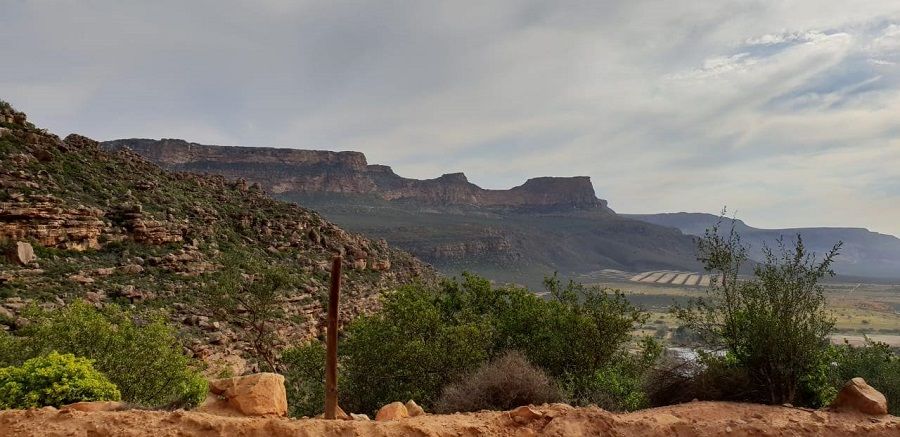
Every home has its own problems and if you are a country… well the problems can include anything from political instability, recession, poor healthcare and the list can go on forever. South Africa has surely been in the news over the years for all the wrong reasons and just when we said goodbye to apartheid’s mafia with a sigh of relief and everybody sang ‘kumbaja’ in harmony, trouble stirred again – in the form of the Zuma era.
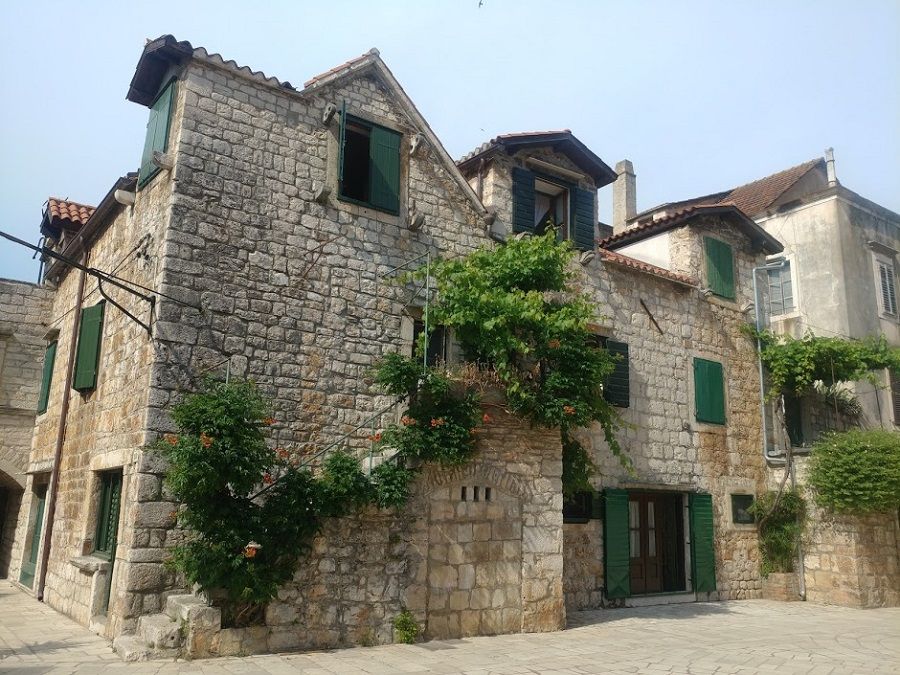
To explain the Jacob Zuma era of looting, fraud and underhand manoeuvres in state departments such as the South African Revenue department, South Africa Railway system, mining industry etc. would take 50 articles. One of the best online newspapers that did a splendid job was The Daily Maverick – not only did they report objectively but was also instrumental in exposing the whole shenanigans with the Gupta brothers. South Africa almost belonged to three brothers living in Dubai!
For eight years this played havoc with the South African Rand and people become more and more disheartened with the slow deterioration of a country so beautiful but so divided. Our brand new president, Cyril Ramaposa, brought a certain amount of relief, but the ruling ANC party is so divided and riddled with thugs that he is barely able to put plugs in all the holes of our democracy. The crime rate in South Africa is another tale of sorrow, and it is escalating daily.
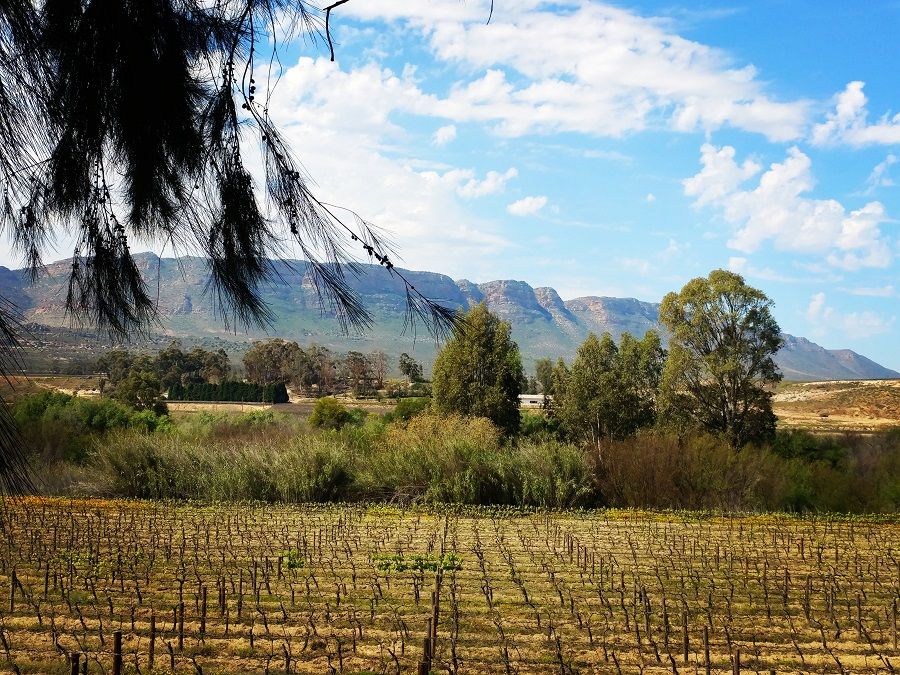
To be mugged in a street or hijacked at a traffic light has become part of everyday activities. Gang violence has also escalated immensely in Cape Town and although it is confined to certain neighbourhoods, it impacts people’s lives on so many levels.
Why do I mention all these tales of dread and discomfort?
South Africans are seeing a country caught in the web of political games and crime, and more people are looking at other countries to buy property with the specific intent of obtaining EU permanent residency. The Rand/ Euro exchange rate hiccups with every poor political decision, and people want to make sure their money is worth more in the future. A sort of insurance policy in case of emergency. Portugal, Malta and Slovenia are among the most popular due to their favourable investment policies.
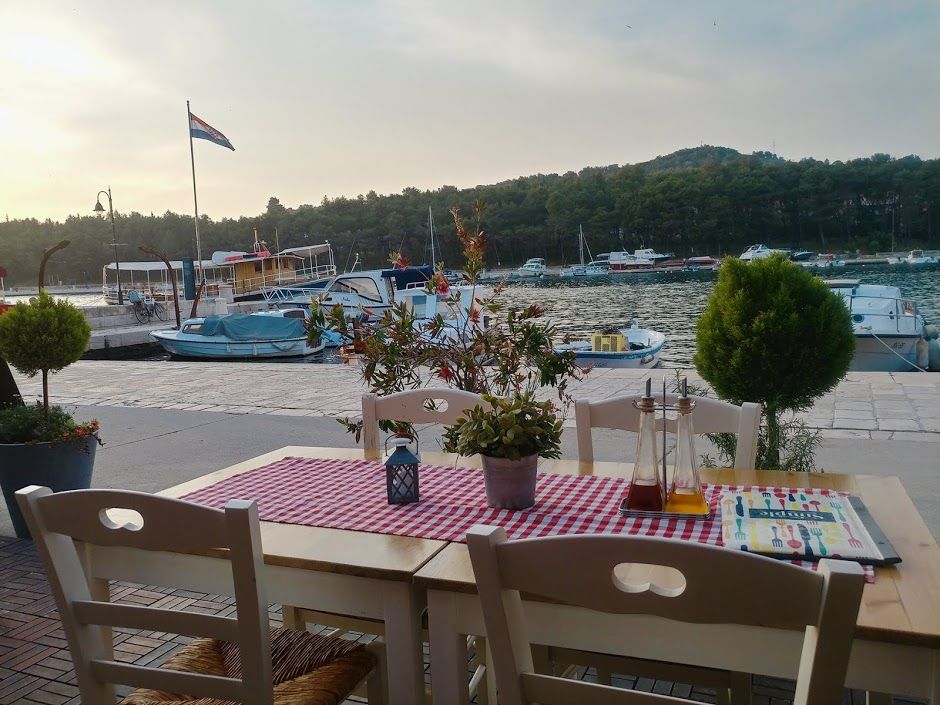
Purely on an emotional decision, with no political worries in mind I visited Stari Grad on the island of Hvar 15 years ago and stayed for 3 months. Two years later I was offered the chance to buy a friend’s house in the old historic part of town. An opportunity I grabbed with both hands. I have never looked back. Over the years so many South Africans have visited our house in Croatia and the most frequent questions by all SA visitors: How much does it cost to buy property in Croatia/ How did the buying process work/ Can you please give me the name of a property agency.
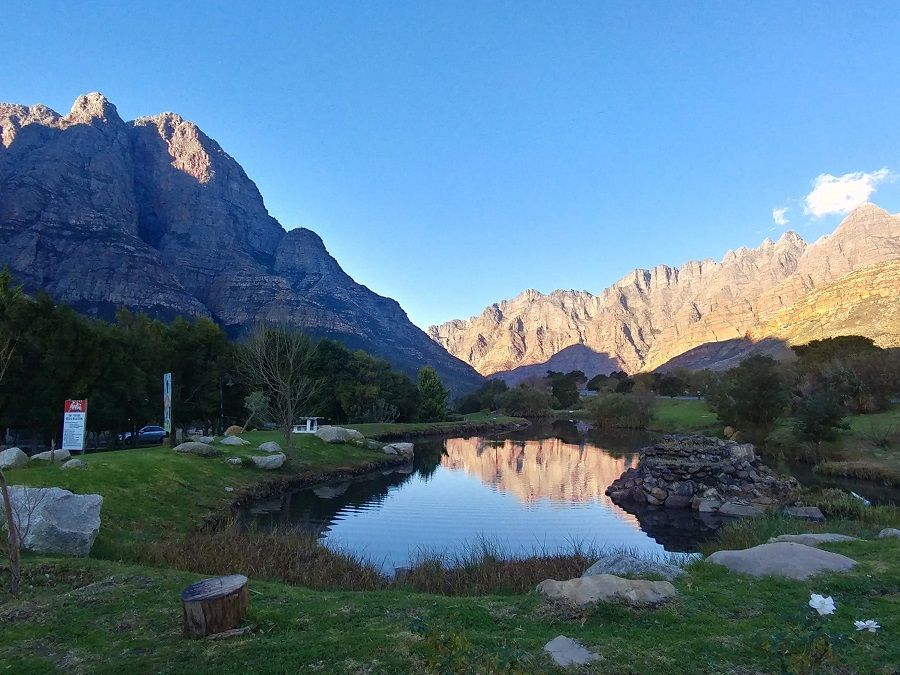
Why (besides the obvious) are South Africans interested in Croatia as a second home country?
One of the safest countries in the world. My favourite story to tell people is the fact that the police station on the island work office hours. If you have never had to lock your car door every time you get in or look nervously around when you have to stop at a red light you will not understand the importance of this.
Rand/ Kuna exchange rate quite good compared to the Rand/Euro or Pound.
There is the anticipation of Croatia getting Schengen status within the next few years (already EU status). South Africans, like the Australians love to travel, but the EU visa nightmares are endless and expensive. At the moment permanent residency in Croatia is like finding the Holy Grail, but hopefully it will get better in the near future.
Investment growth in Croatia is much better. The value of my house in Stari Grad doubled in 13 years due to the Rand/Euro situation.
South Africans are spoilt with one of the best lifestyles in the world due to beautiful landscapes and excellent food quality. They can duplicate that in Croatia.
Slower pace of life in Croatia. A lot of people are looking at a more relaxed lifestyle and Croatia offers all of that and more.
Excellent opportunities for entrepreneurs in Croatia (if you can get past the red tape). As a previously Socialistic country Croatians do not always think like entrepreneurs and often miss all the wonderful opportunities.
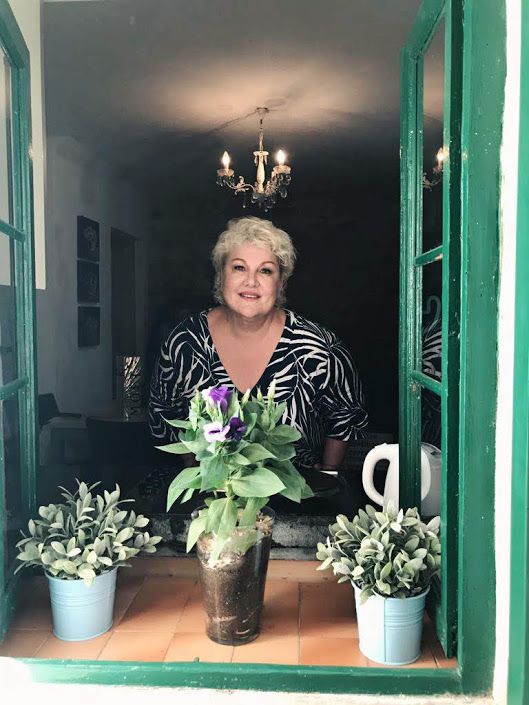
Wonderful farming opportunities for South Africans – a nation of farmers. An increase of farm murders in SA make farmers look at other countries of opportunities. Zambia is popular due to the government subsidizing new farmers and tax breaks for exporting. If Croatia wants to save their farming industry – send a delegation to Zambia for advice.
The kindness and genuine friendship Croatians offer to me and my family as well as any friends that have visited always surprise us. My neighbours in Stari Grad see my house as an extension of their responsibilities when I am not there and will guard my property like their own. It is common to find a bunch of lavender in your windowsill or a bowl of fresh figs on your doorstep on a weekly basis.
Many thanks Beatrix, who used to write occasionally for Total Hvar back in the early days - you can read her Stari Grad property buying experience here.
If you are South African and would like to contribute to the South African experience in Croatia, contact us on This email address is being protected from spambots. You need JavaScript enabled to view it.
South African Police Investigating Manslaughter of Croatian Hunter Pero Jelinić
The police are investigating whether the weapon used in fatal hunting was legal and who was holding the rifle.
Croatian Lion Hunter, 75, Shot Dead in South Africa
January 28, 2018 - The dead hunter was with two other Croatian hunters when he was shot, reports South African media.


